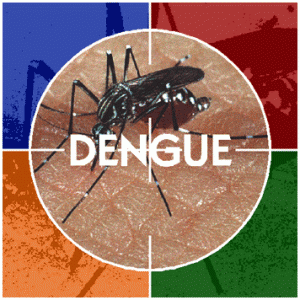Dengue is a disease that is spread by mosquitoes and affects more than fifty million people all over the world. Unlike several other diseases, dengue virus makes a person more vulnerable to infection the second time. In other words, the risk is higher the second time. Latest studies conducted on the disease has revealed why a human body is unable to develop immunity against the dengue virus when it strikes the first time and how the body becomes more vulnerable for a second more fatal attack. The reason has been attributed to variation in the genetic structure of the dengue virus.
There are four kinds of dengue virus, which are named as dengue virus 1, 2, 3 and 4. These variants can again be subdivided into different genetic groups. According to the latest study, this is one of the reasons why the body cannot develop immunity against the virus. In fact, the study has proved that immunity against one variant of virus makes the body vulnerable for the other genetic variants. Since the body is immune against one kind of virus, the body fails to fight against the other variants with equal gusto and so, the second attack is more severe. It could also lead to severe hemorrhagic shocks, failure of the circulatory system and fever. This could mean that developing a vaccination for the disease could be a much more difficult task that researchers realize. 
According to the newest reports released by the World Health Organization, dengue is an epidemic in over a hundred countries. Further, latest statistics have shown that over 3 billion people are either infected by the virus or are at risk of being infected.
The dengue virus has managed to bamboozle the immune system of the body owing to its variants. When the disease strikes for the first time, human immune system develops antibodies against it. When the disease strikes again, the antibodies are confused because they compare the new virus with the old one and find both similarities and differences. The fact that there are four major genetic divisions and many more sub divisions make the task very difficult and confusing for the body. Also, a virus that strikes once does not normally strike back again. Even the different variants of one genetic variety can confuse the immune system of the body. The study considered children infected with the disease between the years 2005 and 2009 for evaluation of the way in which immune system reacts against different variants.